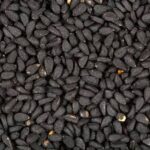Blood Group O and Immunity: Understanding Its Unique Strengths and Weaknesses

When it comes to immunity, each blood group—A, B, AB, and O—exhibits distinct characteristics that influence how the immune system responds to infections and diseases. Among these, Blood Group O is often highlighted in research and medical observations for its relatively strong natural immunity. This article delves deeply into the immunological strengths and weaknesses associated with Blood Group O, exploring why it may confer advantages in resisting certain illnesses and what limitations it may have.
Understanding Blood Groups and Immunity
Blood groups are determined by the presence or absence of specific antigens on the surface of red blood cells. The ABO system classifies blood into four main groups based on these antigens:
“Beat the Pressure: A Comprehensive Guide to Lowering Blood Pressure Naturally.”
Buy book from Gumroad or Paystack
- Group A: Has A antigens on red cells and anti-B antibodies in plasma.
- Group B: Has B antigens on red cells and anti-A antibodies in plasma.
- Group AB: Has both A and B antigens but no anti-A or anti-B antibodies.
- Group O: Has no A or B antigens but has both anti-A and anti-B antibodies.
These antigen-antibody profiles not only matter for blood transfusions but also influence how the immune system recognizes pathogens and mounts defenses.
Immunological Strengths of Blood Group O
- Lower Risk of Certain Infections
Studies have shown that individuals with Blood Group O may have a lower susceptibility to some infections. For example, research on malaria indicates that Blood Group O individuals are less prone to severe forms of the disease caused by Plasmodium falciparum. The absence of A and B antigens on red blood cells reduces the parasite’s ability to adhere to blood vessel walls, lowering the risk of complications. - Enhanced Natural Antibody Repertoire
Because Blood Group O individuals naturally produce both anti-A and anti-B antibodies, their immune systems might be more adept at recognizing and neutralizing pathogens that mimic these antigens. This broader natural antibody presence may contribute to better initial immune responses. - Potential Protection Against COVID-19
During the COVID-19 pandemic, multiple studies suggested that Blood Group O individuals had a somewhat reduced risk of contracting SARS-CoV-2 or developing severe disease compared to other blood groups. While not definitive, these observations point toward an immunological advantage possibly related to ABO antigen interactions with the virus.
Immunological Weaknesses of Blood Group O
- Increased Risk of Certain Bleeding Disorders
Blood Group O is associated with lower levels of von Willebrand factor and Factor VIII, essential proteins for blood clotting. While not directly an immune function, this can affect the body’s ability to manage injury and inflammation, both tightly linked to immune responses. - Higher Susceptibility to Some Infections
Although Blood Group O may reduce risk for certain diseases, it can increase vulnerability to others. For instance, some studies have linked Blood Group O to a higher risk of severe cholera and norovirus infections, which exploit the absence of A/B antigens to infect cells. - Potential Impact on Autoimmune Conditions
The unique antibody profile of Blood Group O may influence susceptibility to autoimmune diseases differently compared to other groups, but research remains inconclusive on whether this is a significant factor.
Conclusion
While no blood group guarantees complete immunity or vulnerability, Blood Group O stands out for its unique immunological profile. The absence of A and B antigens combined with the presence of both anti-A and anti-B antibodies often equips individuals with Blood Group O with robust natural immunity against specific pathogens, contributing to lower risks of diseases like severe malaria and potentially COVID-19. However, this advantage is balanced by increased risks in other areas, such as bleeding disorders and vulnerability to certain infections.
Understanding these nuances is vital not only for medical research but also for personalized healthcare strategies. As science advances, recognizing the interplay between blood groups and immunity can aid in developing targeted treatments and preventive measures tailored to individuals’ genetic and immunological backgrounds.
💔 “She said she loved me. And for fifty-two years, I believed her.” 💔
Buy The Book "The Longest Lie: A Husband’s Journey Through Love, Betrayal, and Redemption" From Gumroad






